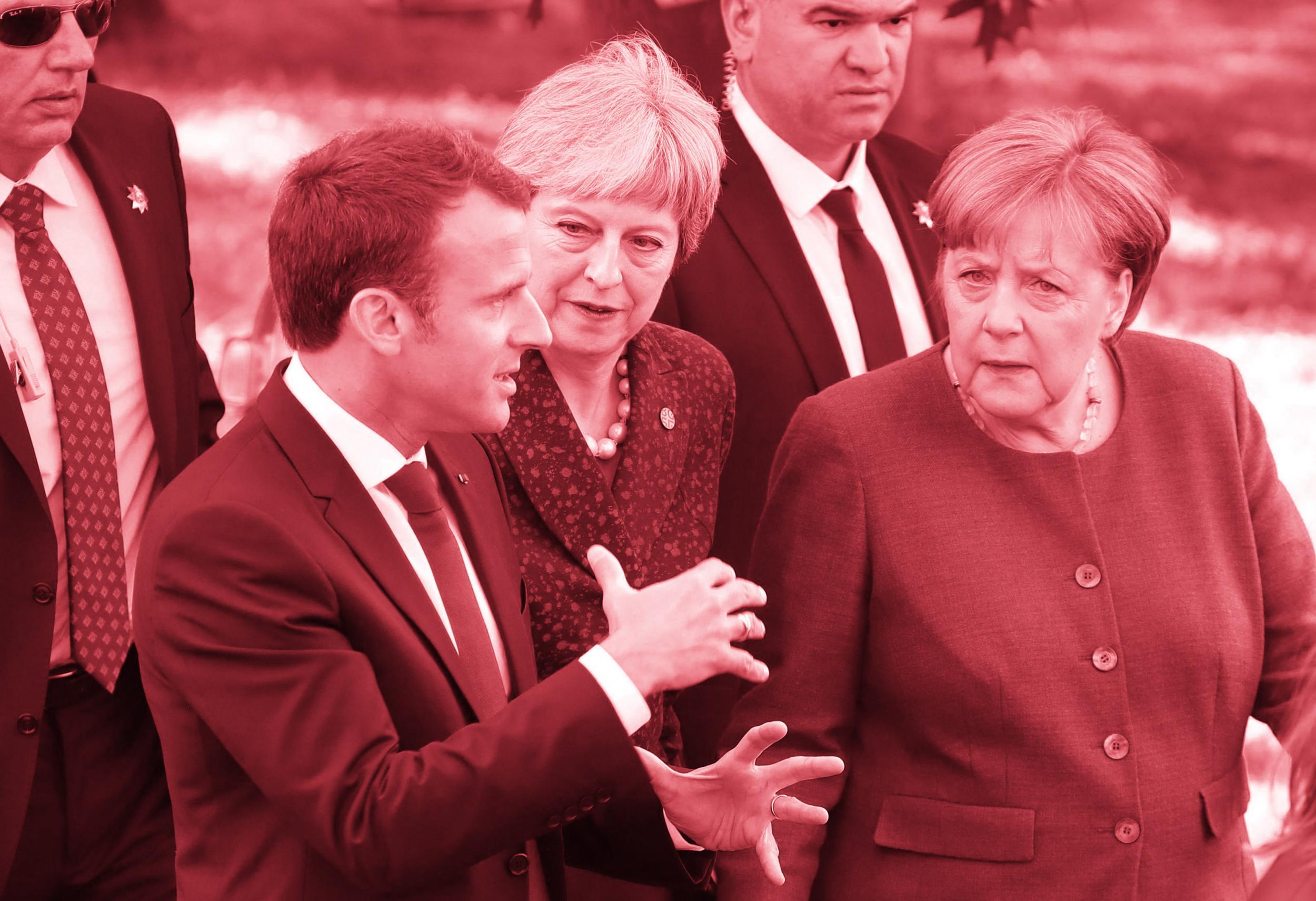Your support helps us to tell the story
From reproductive rights to climate change to Big Tech, The Independent is on the ground when the story is developing. Whether it's investigating the financials of Elon Musk's pro-Trump PAC or producing our latest documentary, 'The A Word', which shines a light on the American women fighting for reproductive rights, we know how important it is to parse out the facts from the messaging.
At such a critical moment in US history, we need reporters on the ground. Your donation allows us to keep sending journalists to speak to both sides of the story.
The Independent is trusted by Americans across the entire political spectrum. And unlike many other quality news outlets, we choose not to lock Americans out of our reporting and analysis with paywalls. We believe quality journalism should be available to everyone, paid for by those who can afford it.
Your support makes all the difference.Emmanuel Macron and Angela Merkel have told Donald Trump they are prepared to talk about reducing European Union trade barriers to US imports – but only if the US president offers a time-unlimited exemption for the EU from his threatened metal tariffs.
Does this represent a surrender to Trump’s sabre-rattling on trade? Or are they actually playing hardball?
And are there implications for the UK post-Brexit?
What have the Europeans said?
It’s a two pronged manoeuvre from the French President and the German Chancellor.
Trump gave the EU a temporary exemption from his 25 per cent steel and 10 per cent aluminium tariffs in March.
Macron and Merkel both said on Thursday that they expect this exemption to be made permanent.
“It’s Europe’s economic sovereignty, and what we are demanding is that we are exempted without conditions or time limits,” said Macron.
However, Merkel also said that, if this happened, they would be prepared to talk “about how we can reciprocally reduce barriers to trade”.
And the EU Commission President, Jean-Claude Juncker, provided more detail, saying the EU would consider improving transatlantic energy cooperation on the trade of liquefied natural gas, providing reciprocal market access for industrial products, and even discuss reforms to the World Trade Organisation.
Is this an EU climbdown?
The key word from Merkel’s statement is “reciprocal”.
The EU is certainly not conceding to Trump’s claim that bilateral trade is somehow unfairly skewed against the US.
But they are willing to talk about reducing some trade barriers, if the US does the same for EU imports.
They are also keeping the EU’s potential counter-measures to Trump’s tariffs on the table.
These include levies on imports of US whiskey, peanut butter, cranberries and orange juice
What does this have to do with Brexit?
Macron, Merkel and Juncker were all speaking in Bulgaria, on the sidelines of an EU summit with Balkan countries.
It was a co-ordinated response – and they made it clear that they were representing a common EU position.
Brexiteers promised that the UK would be more nimble and pro-active in doing trade deals with countries like the US after leaving the EU.
But recent months have shown that, in this new protectionist and geopolitically unstable era, defence matters too.
Acting as a bloc, gives the EU leverage in this showdown with Trump. That’s already been shown in his temporary exemption for the EU from the steel tariffs.
The commercial value of such solidarity may well also come into play when it comes to protecting EU firms from potential US sanctions if they carry on doing business with Iran, respecting the fact that the EU, unlike the White House, has not walked away from the Tehran nuclear deal.
It’s extremely doubtful whether the UK, acting alone in the world, would have the same defensive heft as it has as part of the 28-member EU.
Brexit may, or may not, bring trade opportunities for the UK. But one thing it certainly brings is greater potential vulnerability for the UK.

Join our commenting forum
Join thought-provoking conversations, follow other Independent readers and see their replies
Comments